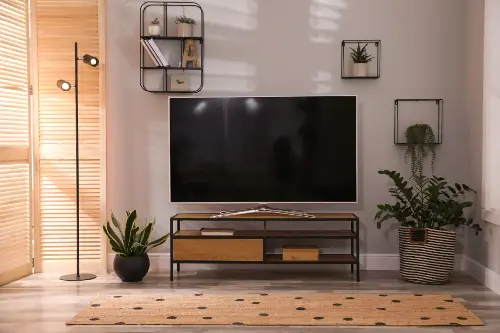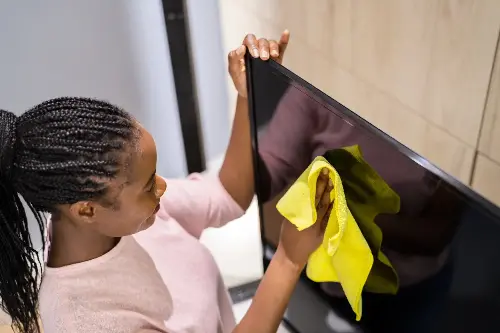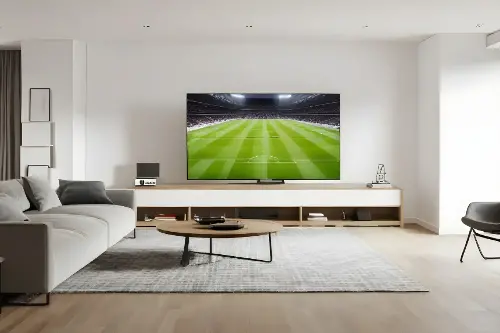In the comfort of our homes, televisions have become more than just a medium for entertainment; they're a significant part of our daily lives. But did you know that some of our common habits could be unwittingly shortening the lifespan of our cherished screens? Let’s delve into the lesser-known mistakes that may lead to an early demise for your television and how you can sidestep these pitfalls.

Placement Perils: The Risk of Improper Ventilation
When setting up a new television, many of us are mainly concerned about aesthetics and viewing angles. However, sparing a thought for ventilation can save you from premature TV troubles. Televisions, like most electronic devices, produce heat during operation. If placed in an enclosed space without adequate airflow, this heat can build up, potentially damaging sensitive components. Ensure there is ample space around your TV, particularly around the vents, to allow for proper heat dissipation. A general rule is to leave at least two to four inches of space between your TV and the wall or cabinet surfaces.
The Brightness Battleground: Optimal Settings for Longevity
In the quest for the most vivid picture, cranking up the brightness may seem like a good choice. Yet, this can strain your TV’s backlighting system, leading to a shorter lifespan. Modern televisions are calibrated to deliver an optimal picture at default settings. Adjust your TV’s brightness according to the lighting conditions of the room, and resist the urge to max it out. This balance will not only reduce power consumption but also go easy on your screen’s backlight.
The Power Surge Scourge: Protect Your TV from Voltage Spikes
Power surges flow through your home's electrical supply more frequently than you'd imagine, posing a silent threat to your electronic devices. While many of us use surge protectors for our computers, we often overlook extending the same courtesy to our televisions. A dedicated surge protector for your TV can absorb those unexpected spikes in voltage and prevent irreparable damage to your unit’s delicate circuitry.

Cleanliness is Key: The Right Way to Dust Off Your Display
Keeping your TV screen dust-free is not just a matter of visual preference; it also contributes to the longevity of your television. However, spraying household cleaners directly onto the screen can be harmful. Many screens have anti-glare coatings that can deteriorate when exposed to harsh chemicals. Instead, gently wipe the display with a soft, dry, microfibre cloth. For stubborn stains, use a solution of mild soap and water, ensuring it’s lightly applied to the cloth rather than the screen itself.
Connect With Care: The Perils of Overloading Inputs
Modern televisions come equipped with a host of inputs and outputs. While it's tempting to have all your devices plugged in and ready to go, constantly switching cables and overloading ports can lead to wear and tear over time. To avoid this, connect only the devices you use regularly and ensure that connections are secure without forcing plugs. If you need multiple devices connected, consider using an external HDMI switch to reduce the physical strain on your TV’s inputs.
Standby Mode Misconception: The Silent Energy Drainer
Most televisions today have a standby or sleep mode, allowing for quick power on and scheduled recordings. But this convenience comes with a hidden cost. In standby mode, your television still consumes power, and more importantly, the components are in a state of constant low-level stress. To increase the longevity of your television, fully power it down when not in use. This not only conserves energy but also gives your TV a proper rest.

The Overuse Overture: Moderation is Key
It’s easy to leave the TV on for background noise or as a sleep aid, but such overuse can lead to faster degradation of the screen. LCD and OLED screens have a finite lifespan, often measured in hours of use. To keep your television from ageing prematurely, turn it off when you’re not actively watching. Use a sleep timer if you like falling asleep to the comforting glow of your favourite shows.
By understanding and adjusting these everyday behaviours, not only can you enhance your viewing experience, but you can also significantly extend the life of your television. Modern televisions can be a hefty investment, and a few simple habits can protect this investment, ensuring years of high-quality entertainment in the comfort of your living room. It’s the little things that count, and in this case, they could translate to many more years of enjoying your favourite movies, series, and sports in stunning clarity.
